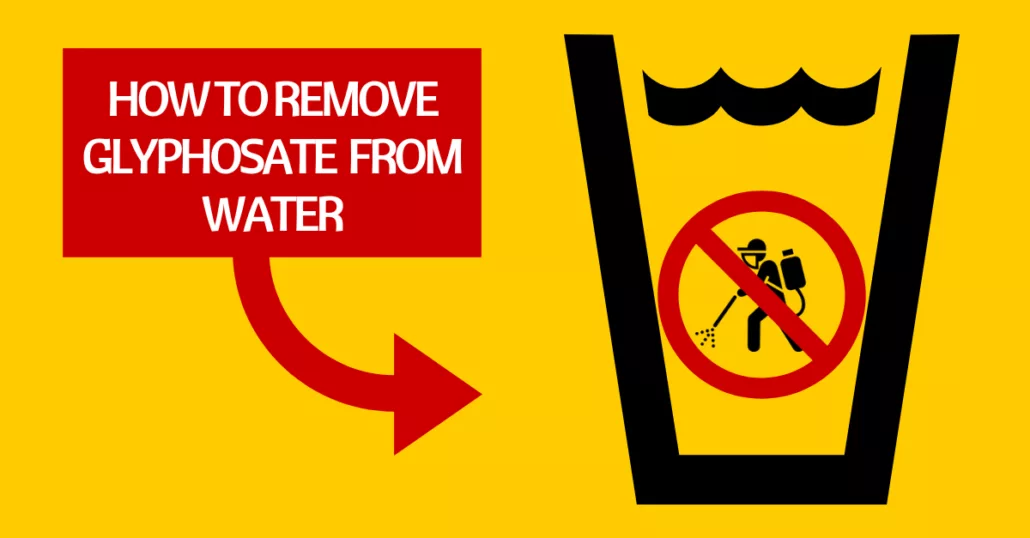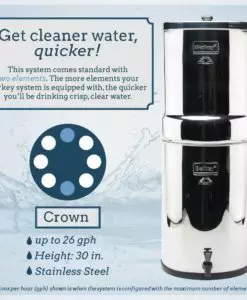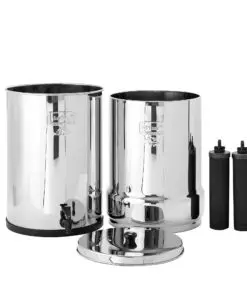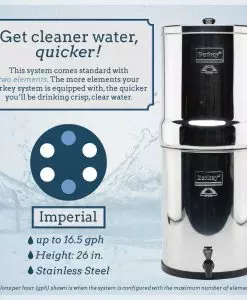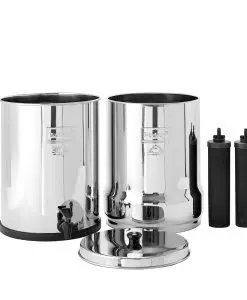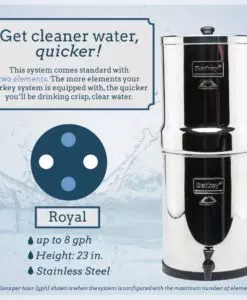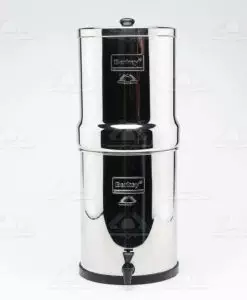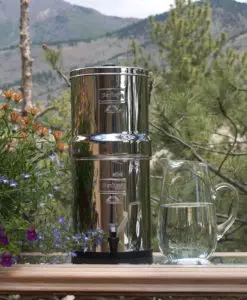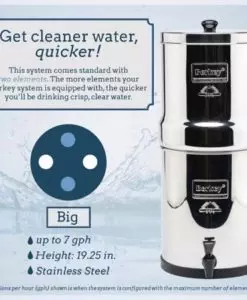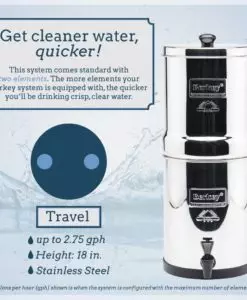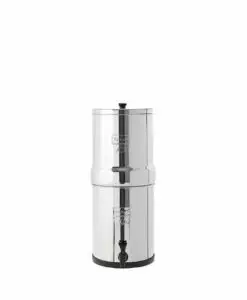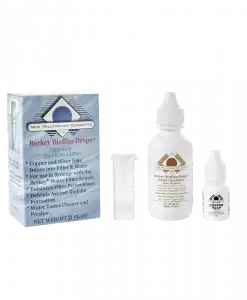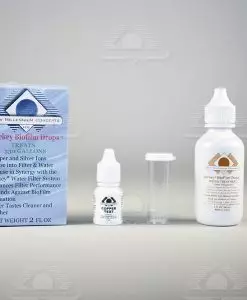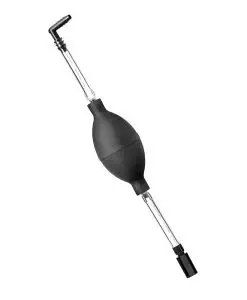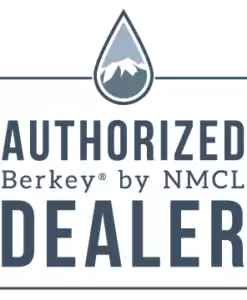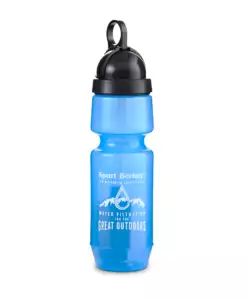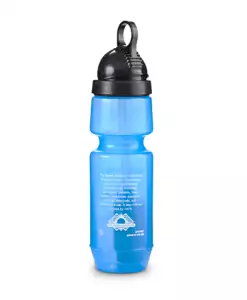Emergency Water Supply
How to Remove Glyphosate (Round Up) from Water
You might be concerned about how to remove glyphosate from water. As there has been a lot publicity surrounding the negative impacts of glyphosate recently. Glyphosate is the key ingredient in the herbicide Roundup and around 90 other herbicide products.
Last year former school groundskeeper Dewayne Johnson successfully sued Monsanto (the manufacturer of Roundup), on the basis that its product contributed to his cancer. 46-year-old Johnson was awarded US$289 million in damages.
Research on Glyphosate and Cancer
“The International Agency for Research on Cancer (IARC) found in 2015 that glyphosate (commonly known as Roundup) was “probably carcinogenic to humans”. Despite IARC’s evidence, Monsanto still claims it’s safe and does not cause cancer.”
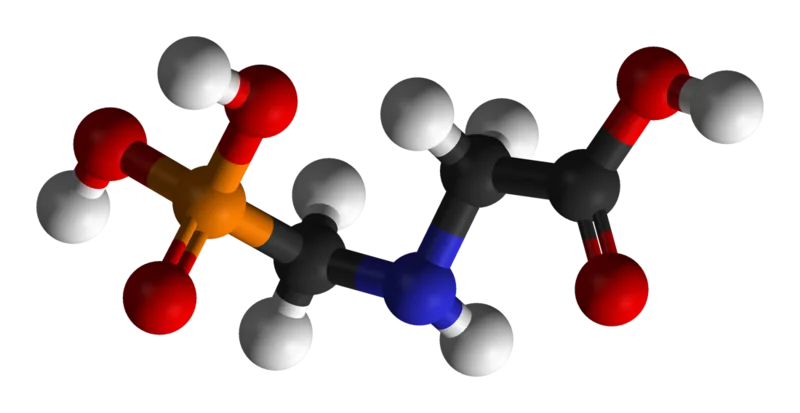
Here in New Zealand the EPA still maintains the safety of glyphosate. But historically there have been many episodes globally of a government regulator proclaiming the safety of a product. Only to have studies show the opposite of this down the track.
So for the health conscious person, it would seem to be sensible to remove any trace of glyphosate from water. Regardless of what government bodies indicate about glyphosate’s safety.
Is Glyphosate in New Zealand Water?
But how likely is it that glyphosate is in New Zealand water?
With the widespread use of herbicides like Roundup in New Zealand, there is a chance that run off from agriculture use could end up in New Zealand water supplies.
Last year the New Zealand Herald asked;
“Could traces of Roundup be in a key source of New Zealand’s drinking water?”
“Roundup is for the first time being tested for in groundwater – which is used to supply up to half of the country’s drinking water.”
…The Institute for Environmental Science and Research confirmed to the Herald that Roundup or Glyphosate – will be tested for in a “separate suite of analysis” as part of its 2018 groundwater pesticide survey. The survey is conducted every four years.
Up to 50 per cent of the community drinking water supplies around the country were reliant on groundwater. A significant number of individual rural households also relied on groundwater for their drinking water supply.
…Andrea ‘t Mannetje, an associate professor at Massey University’s Centre for Public Health Research, said it was great ESR was testing for it.
“It’s used a lot, a lot, a lot.
“[I] definitely expect they will find some,” she said.
University of Canterbury Associate Professor Sally Gaw agreed that Roundup was a “sensible one to include” in testing, given the huge public interest in the weed killer right now.
She said it would be informative to know where it is and how much is out there.
Along with glyphosate, a long list of new, what are called “emerging contaminants” or chemicals where the risks to human health and the environment were not yet fully understood, had also been added to this year’s survey.
They include Bisphenol-A or BPA – which yesterday the Herald revealed had been found throughout the Waiwhetu Aquifer which is used to supply the Wellington region’s drinking water – pharmaceuticals, including Ibuprofen, Triclosan – which was banned in hand soaps in the United States in 2017 – insect repellent, caffeine, nicotine and others.
Testing was expected to be completed by late November or early December, with the results expected back by the end of January or early February 2019.
It’s far from the first time Glyphosate has been tested for and found in drinking water in the world. The first time it was tested for in drinking water, back in 2002, was in the United States. Researchers from the US Geological Survey collected 154 water samples across nine Midwestern States, finding Glyphosate in 34 per cent of them.
That led to the US Environmental Protection Agency setting a drinking water maximum contaminant level of 700,000 nanograms per litre (ng/L) for glyphosate. Maximum levels vary in other parts of the world – in Europe it’s 100 ng/L, in Canada it’s 280 ng/L, in the UK it’s 100 ng/L and in Australia it’s 1,000,000 ng/L.”
Source: New Zealand Herald
So we don’t yet have the results on the glyphosate water testing in New Zealand. But why take the chance?
But Can Glyphosate Be Removed from Water?
The answer is yes.
Chlorination, ozonation, advanced oxidation processes, nanofiltration and reverse osmosis can generally provide good removal of glyphosate.
Biodegradation and adsorption processes can be effective for removing glyphosate in bank filtration and slow sand filters.
Granular activated carbon treatment is also effective.
Source: Watertechonline.com
How to Remove Glyphosate From Water
For the average person a benchtop gravity water filter is a simple and effective method to filter and purify your everyday drinking water. But not every home water filter will remove glyphosate from drinking water.
The popular Berkey Water purifier has been tested and shown to remove glyphosate from water.
Berkey state in answer to the question:
“Do your Black Berkey® Purification Elements remove Glyphosate?”
“Glyphosate is a non-selective herbicide and pesticide. Glyphosate is primarily released into the environment via runoff water and predominately [sic] applied as a spray for agricultural purposes. This contaminant has recently become the topic of discussion because of its association with acute or chronic exposure leading to various potential health issues or concerns. The EPA has extensive information published about Glyphosate, particularly about it being in drinking water. Click here to view basic information about Glyphosate in drinking water.
Black Berkey® Purification Elements will reduce Glyphosate in your water by greater than 75%, exceeding the laboratories reporting limits. Please click here to view our Organic Test Results.
…Additional resources for glyphosate can be found through the Environmental Working Group and the National Institutes for Health”
Source. BerkeyWaterKB.com
The laboratory reporting limits used by the testers could only test to 75%. So the standard Black Berkey Elements may well achieve a reduction greater than this.
However a recent independent test by Natural News demonstrated 100% removal of glyphosate by a Big Berkey purifier. It was one of only 2 gravity water filters to achieve this result. See the video below for the full details of testing.
Independent Testing: 100% Removal of Glyphosate from Water with Berkey Purification System
Note: The Berkey unit tested by Natural News did also have the Berkey PF-2 Fluoride and Arsenic reduction elements attached. So these added filters may have been a factor in the complete removal of the glyphosate from the water tested.
Hopefully Natural News may test a Berkey without the PF-2 elements attached in the future. But for now it might be advisable to also use the PF-2 Fluoride and Arsenic reduction elements. That way you can be sure to remove the highest possible level of glyphosate from your drinking water.
A major benefit of the Berkey Systems in purifying and filtering water is that they are great for everyday use in removing the likes of chlorine, fluoride (with the optional PF-2s), and glyphosate. But they are also excellent in emergency use. Being able to filter muddy and stagnant pond water of parasites and viruses.
Learn more about the Berkey Systems here >>
Berkey Water Filters
Berkey Water Filters
Berkey Water Filters

